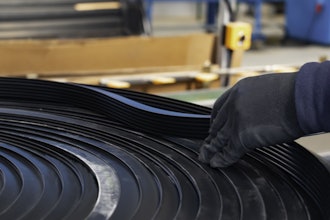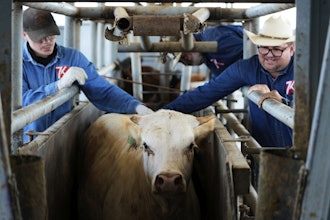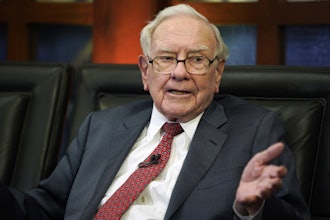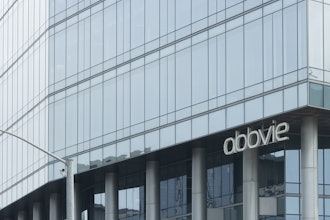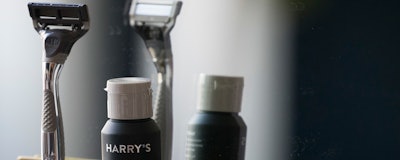
NEW YORK (AP) — If you can't beat them, join them.
The owner of Schick razors is acquiring upstart shaving company Harry's for $1.37 billion, continuing a trend of consolidation in the shaving industry, where established brands have struggled with the rise of digital-savvy newcomers. About 79% of the deal is cash, and the remainder stock.
Harry's has bedeviled Schick and Gillette for years using innovative subscription plans and sleek packaging and competitive pricing.
Under the agreement announced Thursday, investors in Harry's Inc. will take a stake of about 11% of Edgewell Personal Care Co., which manages Schick and other brands. Edgewell gets the Harry's brand and access to the company's prized direct-to-consumer marketing base.
Harry's founders, Andy Katz-Mayfield and Jeff Raider, will become co-presidents of Edgewell's U.S. operations when the deal closes, expected in early 2020.
"This is not a situation where we're going to get lost inside of some larger company," Katz-Mayfield said in a conference call with analysts. "What was really compelling about the combination was our ability to take on bigger roles and have more impact."
Harry's becomes the latest shaving startup to combine forces with a major consumer brand company. Unilever bought Dollar Shave Club for $1 billion in 2016. Last year, Gillette's parent company, Procter & Gamble, bought Walker & Co., marketer of the Bevel, a shaving brand aimed at black consumers.
The Harry's brand steps on to a much larger stage, a global one, and will be marketed through Edgewell's enormous distribution channels. The company has a footprint in 50 markets. Outside of the U.S., Edgewell has operations in Canada, Mexico, Germany, Japan and Australia. Edgewell also owns the brands Banana Boat and Hawaiian Tropic and Wet Ones wipes.
Since its founding in 2013, Harry's, based in New York, has captured about 2.6% of the $2.8 billion men's shaving industry, according to Euromonitor market research firm.
Gillette, the brand that defined men's shaving for a century, saw its U.S. market share fall from about 70% a decade ago to less than 50%. Schick, the No. 2 razor brand, has a market share of about 10%. Dollar Shave Club's market share stands at 8.5%.
Harry's has expanded into brick-and-mortar retail, through partnerships with Target and Walmart. Last year, the company launched Flamingo , a new women's shaving and skincare brand.
Both moves have helped Harry's become the "fastest growing men's shaving brand in the U.S., with sales more than doubling in 2018," according to Andrew Stablein, a research analyst at Euromonitor International.
Harry's has declined to release revenue figures.
Harry's and Dollar Shave Club capitalized on simmering consumer frustration with increasingly pricey razors. Their direct-to-consumer models allowed both brands to build a sense of intimacy with customers that traditional brands struggled to replicate, taking years to develop their own direct-to-consumer sites.
Edgewell reported a 15% drop in sales from its global shave business in its second quarter earnings report Thursday, and shares of the company were down nearly 17% to $33.12 in afternoon trading. Last year, Edgewell launched a revamped version of its direct-to-consumer site, Schick.com, experimenting with products developed just for the site. It also has acquired two trendy men's skincare brands, Texas-based Jack Black and the U.K. company Bulldog.
"We were already working to be more like Harry's, more agile and more entrepreneurial," Edgewell CEO Rod Little said in a brief interview with The Associated Press. "It was almost a perfect combination of assets and capabilities."
Raider said Harry's technology can be used to build direct-to-consumer sites for Edgewell's other brands. He said they would likely be separate sites, and Harry's.com will remain the platform for that brand's direct-to-consumer sales.
Meanwhile, Harry's will benefit from Schick's blade manufacturing capabilities, developed over a century. Harry's produces its blades at a German factory that Raider and Katz-Mayfield bought for $100 million. Raider said the factory would remain the focal point for Harry's, but the two brands are expected to transfer technology as they develop their products.
"Schick has unbelievable blade technology that we have been envious of for a long time and now we can leverage that technology," Raider told AP.
Associated Press writer Matt Ott in Madrid contributed to this story.










